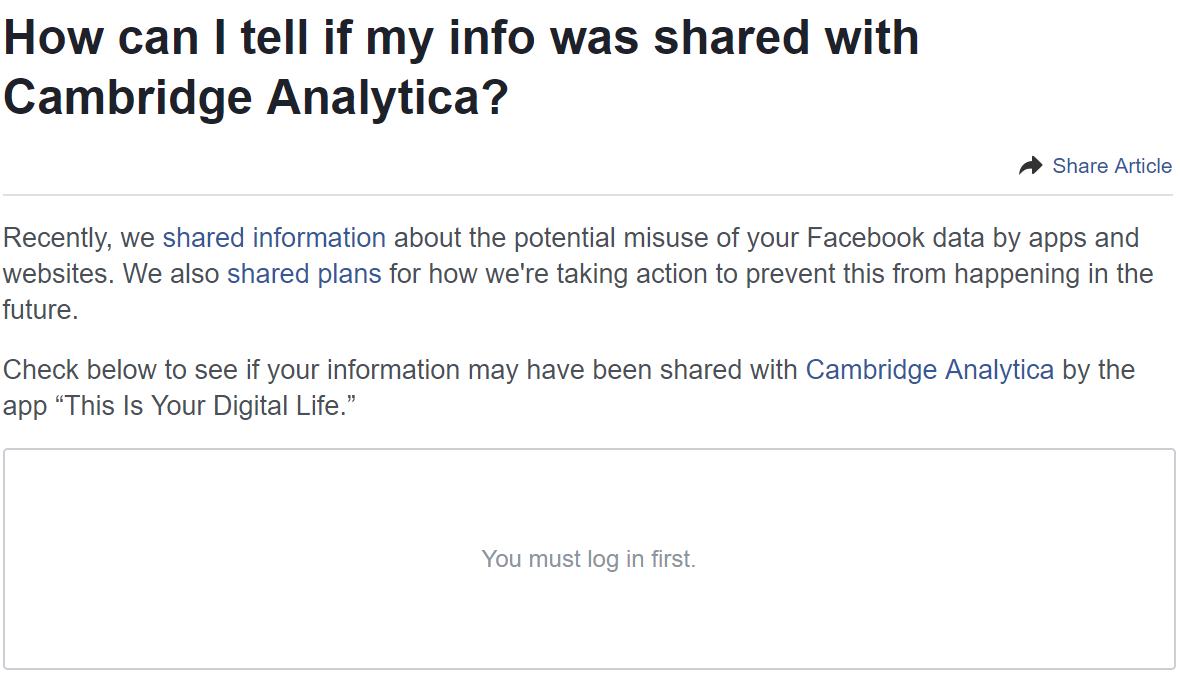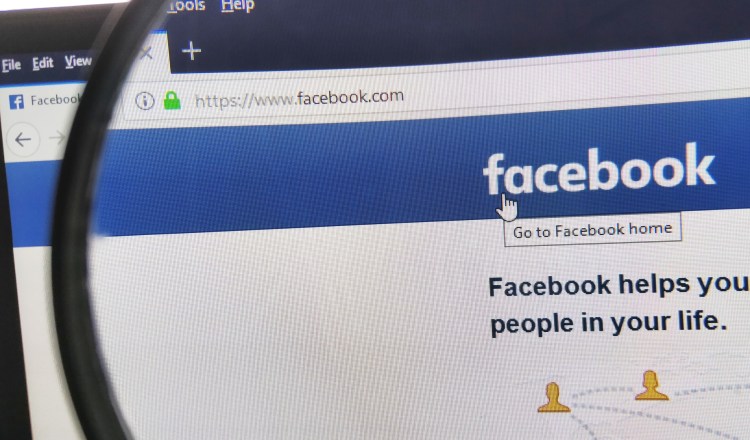By Facebook’s latest count, political research firm Cambridge Analytica obtained the data of 87 million users. About 70 million are in the U.S., while the remaining users are spread across the globe. Facebook will be pushing a notification to the top of your News Feed indicating whether you were affected — but if you don’t want to wait, here’s how you can check yourself.
Head to the “How can I tell if my info was shared with Cambridge Analytica?” page on Facebook’s Help Center. Log in with your Facebook account — you can do this on your mobile device or on your computer. When you’re done, remember to navigate back to Facebook and log out.

Based on Facebook’s findings, the page will update to answer the question “Was My Information Shared?” Note that the result is only specific to Cambridge Analytica obtaining data from the app “This Is Your Digital Life” — the quiz app developed by university researcher Dr. Aleksandr Kogan. It is certainly possible that your Facebook data was compromised in another way, by Cambridge Analytica or by a different firm (indeed, Facebook has already suspended two more companies: CubeYou and AggregateIQ).
June 5th: The AI Audit in NYC
Join us next week in NYC to engage with top executive leaders, delving into strategies for auditing AI models to ensure fairness, optimal performance, and ethical compliance across diverse organizations. Secure your attendance for this exclusive invite-only event.
Facebook is auditing apps, shutting down accounts, locking down APIs, ending data partnerships, and simplifying privacy settings — but this is all reactionary. Keep in mind that this tool is only checking one (large) data breach.
If you’re in the clear, you’ll receive a message like this:
Based on our available records, neither you nor your friends logged into “This Is Your Digital Life.”
As a result, it doesn’t appear your Facebook information was shared with Cambridge Analytica by “This Is Your Digital Life.”
If your data was compromised, you might receive a message like this:
Based on our investigation, you don’t appear to have logged into “This Is Your Digital Life” with Facebook before we removed it from our platform in 2015.
However, a friend of yours did log in.
As a result, the following information was likely shared with “This Is Your Digital Life”:
- Your public profile, Page likes, birthday and current city
A small number of people who logged into “This Is Your Digital Life” also shared their own News Feed, timeline, posts and messages which may have included posts and messages from you. They may also have shared your hometown.
The third option is that you used the app yourself:
Our investigation indicates you logged into “This Is Your Digital Life” with Facebook before we removed it from our platform in 2015.
As a result, you likely shared the following information with “This Is Your Digital Life”:
- Your public profile, Page likes, birthday and current city
- Your friends’ public profiles, Page likes, birthdays and current cities
A small number of people also shared their own News Feed, timeline, posts, messages, and friends’ hometowns with “This Is Your Digital Life.”
As my colleague Jeremy Horwitz put it, the tool will tell you that you’re either safe, infected, or patient zero who exposed all your closest friends and family to a clandestine attack.
Not impressed with your result? You’ll want to watch how Mark Zuckerberg testifies to Congress this week.
We’ve already discussed the process of deleting your Facebook account and how hard that can be. Regardless if you want to choose to join the #deletefacebook movement, you should lock down your account, for your and your friends’ sakes.

